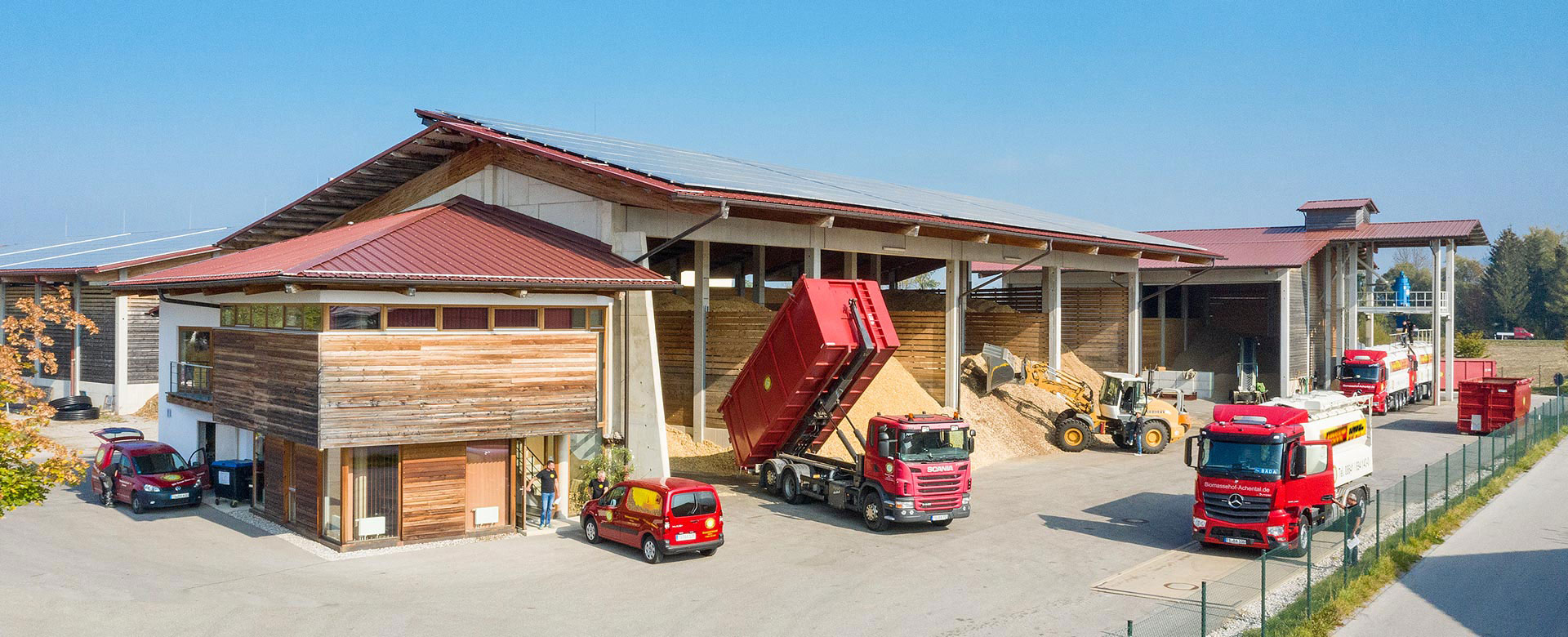Biomass Heating Grid in Grassau
Share

The Achental with its largest village Grassau is a mountainous valley just at the feet of the Alps in southern Germany. In the north, there is located Bavaria’s largest Lake Chiemsee. It is a very touristic area with a high woody biomass potential as the surrounding mountains are covered by forest. In the framework of the EU-funded project (FP6) RES- Integration , the Achental was selected in 2005 as target region for renewable energy actions. The ultimate objective of RES-Integration was to study the implementation of innovative renewable energy and energy saving technologies in selected poor regions of the participating countries (Greece, Germany/Austria, Italy, Serbia and Montenegro, FYROM, Albania). All regions of the RES-Integration project were located in rural, remote and underdeveloped areas of the partner countries. They were selected for their large development potentials concerning innovative and RE-actions. In the framework of this RES-Integration project, a detailed analysis in the Achental Valley was performed on its biomass potential. The analysis showed that the whole region could be 100 % energy self- sufficient by 2020. Based on these findings, the Biomass Trade Center Achental was founded in 2007 as a public-private partnership, operated and owned by several municipalities and private investors.
As next step and in direct neighbourhood to the Biomass Trade Center Achental, the communal heating grid was initiated and installed in 2010 in order to supply more than 500 consumers with heat from locally produced woodchips. The heating grid is operated and owned by the communal heat supply utility (Wärmeversorgung Grassau KU; AöR). Involvement of the inhabitants and local actors was a core factor for the success of the project throughout the whole process.
The direct vicinity of the boiler house of the heating grid to the biomass trade center has various advantages for both organizations. The biomass trade center supplies the woodchips to the heating grid operator, and low-temperature of the exhaust gas condenser is used to dry woodchips of the trade center. In addition, the whole facility is in direct vicinity to the heat consumers – that is why a highly sophisticated exhaust gas cleaning device (electric and particulate filters) was needed.
 R-ACES has received funding from the European Union’s Horizon 2020 research and innovation programme under grant agreement N° 892429
R-ACES has received funding from the European Union’s Horizon 2020 research and innovation programme under grant agreement N° 892429
The Achental with its largest village Grassau is a mountainous valley just at the feet of the Alps in southern Germany. In the north, there is located Bavaria’s largest Lake Chiemsee. It is a very touristic area with a high woody biomass potential as the surrounding mountains are covered by forest. In the framework of the EU-funded project (FP6) RES- Integration , the Achental was selected in 2005 as target region for renewable energy actions. The ultimate objective of RES-Integration was to study the implementation of innovative renewable energy and energy saving technologies in selected poor regions of the participating countries (Greece, Germany/Austria, Italy, Serbia and Montenegro, FYROM, Albania). All regions of the RES-Integration project were located in rural, remote and underdeveloped areas of the partner countries. They were selected for their large development potentials concerning innovative and RE-actions. In the framework of this RES-Integration project, a detailed analysis in the Achental Valley was performed on its biomass potential. The analysis showed that the whole region could be 100 % energy self- sufficient by 2020. Based on these findings, the Biomass Trade Center Achental was founded in 2007 as a public-private partnership, operated and owned by several municipalities and private investors.
As next step and in direct neighbourhood to the Biomass Trade Center Achental, the communal heating grid was initiated and installed in 2010 in order to supply more than 500 consumers with heat from locally produced woodchips. The heating grid is operated and owned by the communal heat supply utility (Wärmeversorgung Grassau KU; AöR). Involvement of the inhabitants and local actors was a core factor for the success of the project throughout the whole process.
The direct vicinity of the boiler house of the heating grid to the biomass trade center has various advantages for both organizations. The biomass trade center supplies the woodchips to the heating grid operator, and low-temperature of the exhaust gas condenser is used to dry woodchips of the trade center. In addition, the whole facility is in direct vicinity to the heat consumers – that is why a highly sophisticated exhaust gas cleaning device (electric and particulate filters) was needed.
